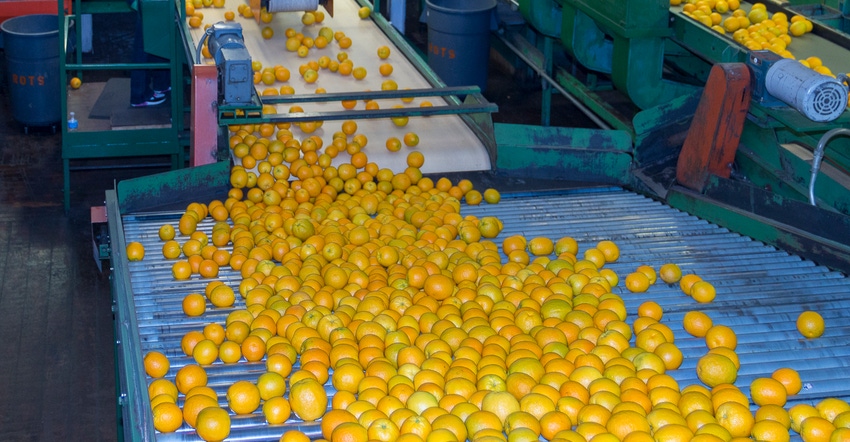
As trade agreements go, there’s likely much more we’re not being told than has been made public. Nevertheless, the recent agreement in principle between Japan and the United States to begin buying U.S. commodities is good given the onslaught of bad news we continue to hear.
The recent statement by President Trump after meeting with Japanese Prime Minister Abe gave hope to groups like Western Growers, the Almond Alliance of California and California Citrus Mutual.
“Western Growers is extremely pleased to learn of the deal in principle between the U.S. and Japan, the third-largest market for American agricultural products,” said Western Growers President Tom Nassif in a prepared statement.
Japan is a significant destination for California almonds, according to Almond Alliance Chairman Mike Curry, who added that the three-fold agreement addressing industrial tariffs, agriculture and digital trade could pave the way for an additional $7 billion in ag exports to Japan.
The devil is still in the details, according to Casey Creamer, who told us recently that the California citrus industry has suffered greatly under the U.S. trade war with China. Whether Japan’s move to buy additional food from the U.S. puts added pressure on China, while opening opportunities for perishable crops like citrus remains to be seen. Still, it’s good news after two years of sour trade and bad weather that hit U.S. farmers in the pocketbook.
Whether it’s the specialty crops produced in the West, or our program crops originating from the South and Midwest, U.S. farmers have rightly been concerned of late over the tit-for-tat trade war that sometimes sound more like an argument between a couple of juveniles than it does adults leading two great nations. Sadly, that’s politics in our age.
As one who continues to learn the intricacies of our food supply, how it’s marketed, and the politics tangled in the process, I think some have lost sight of the possible “long game” President Trump is engaged in. If I heard anything about China in the past several years it was how they were allegedly sitting on an untold number of cotton bales, which was being blamed for depressing world cotton prices. When President Trump then accused China recently of “manipulating currency,” it wasn’t without the understanding that in at least that one sector, China – whether in truth or by perception – was certainly manipulating world cotton markets.
For some commodities like tree nuts, we were recently told that China’s threat to stop buying our food didn’t necessarily mean specialty crops purchased through private Chinese firms, as if those firms operate, in practice, autonomous from Beijing. While the Almond Board of California is publicly optimistic because of its dominance in world almond production, one nut marketer I spoke with suggested the private buyers in China may be more apt to toe the party line than step up and buy U.S. products.
Still, we heard from American Pistachio Growers that China has never bought more U.S. pistachios than it did in the past year. That this happened in the wake of a significant freeze and poor production from Iran, a major competitor in world pistachio markets, suggests that a turn-around in Iranian production could mean challenging times for U.S. pistachio growers absent the successful marketing efforts reported to U.S. pistachio growers.
For those with perishable products like citrus the concerns are real. Casey Creamer, president of California Citrus Mutual, says fruit that didn’t go to China went into domestic markets and anywhere else it could. The glut of U.S. citrus on those markets depressed prices and further exacerbated the advantage buyers had when agreeing to take California citrus.
One California ag leader told me he expects things to tighten further before things get better for U.S. farmers, and perhaps he’s right. Political egos tend to only impact those not insulated from such decisions.
About the Author(s)
You May Also Like






